19+ SAMPLE Internship Plan
-
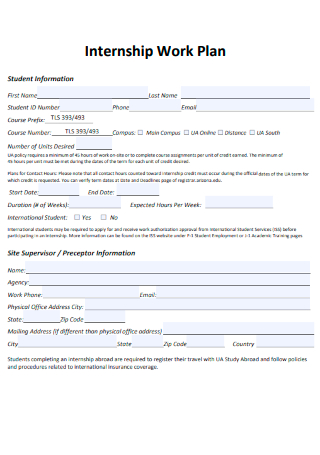
Internship Work Plan
download now -
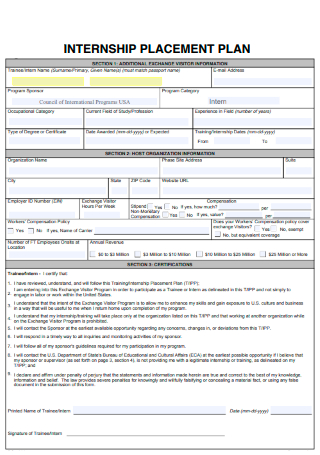
Internship Placement Plan
download now -
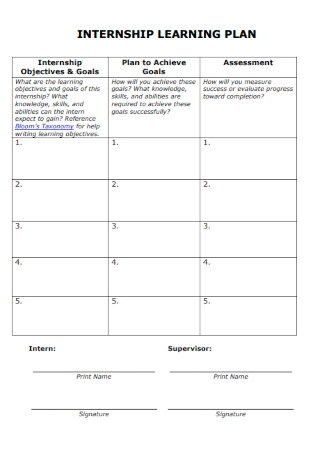
Internship Learning Plan
download now -
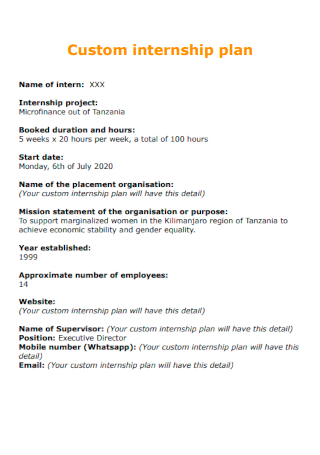
Custom Internship Plan
download now -

Internship Support to Regional Action Plan
download now -
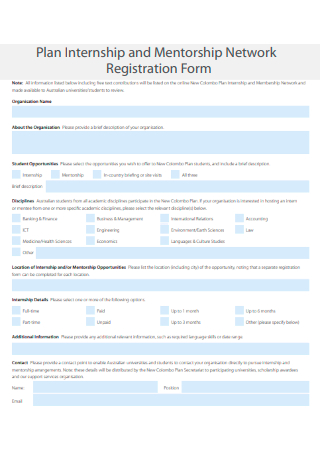
Plan Internship and Mentorship Network Registration Form
download now -
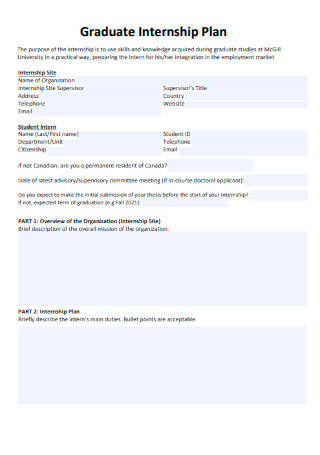
Graduate Internship Plan
download now -
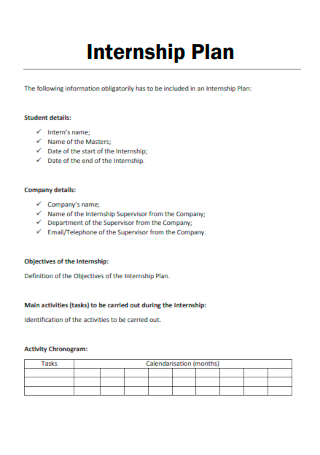
Sample Internship Plan
download now -
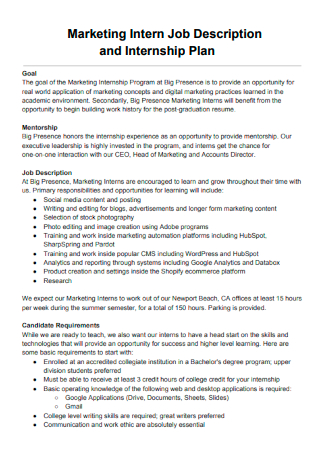
Marketing Intern Job Description and Internship Plan
download now -
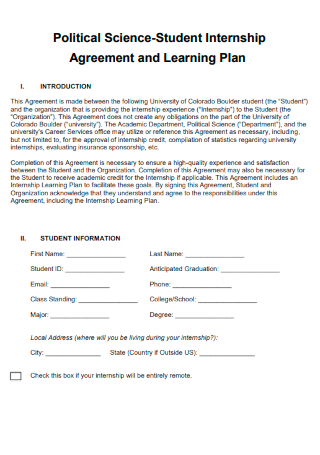
Political Science Student Internship Agreement and Learning Plan
download now -
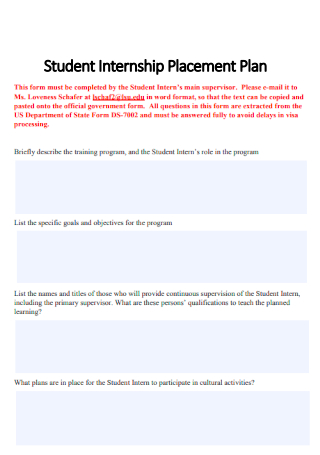
Student Internship Placement Plan
download now -
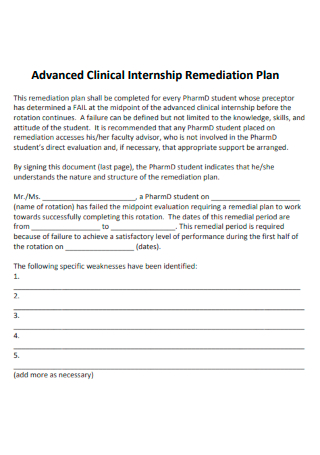
Advanced Clinical Internship Remediation Plan
download now -
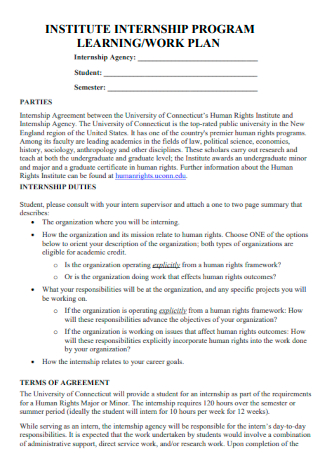
Institute Internship Program Learning and Work Plan
download now -
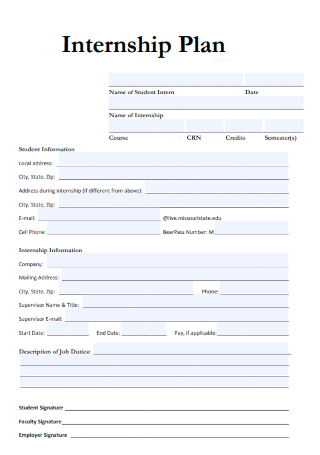
Basic Internship Plan
download now -
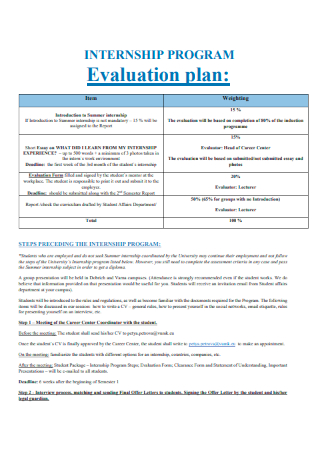
Internship Program Evaluation Plan
download now -
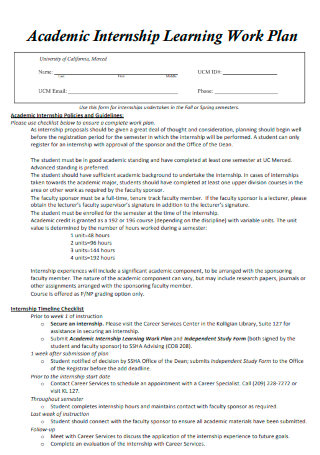
Academic Internship Learning Work Plan
download now -
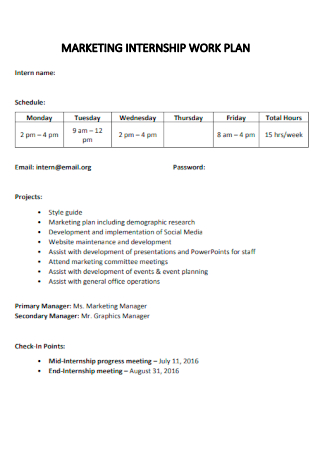
Marketing Internship Work Plan
download now -
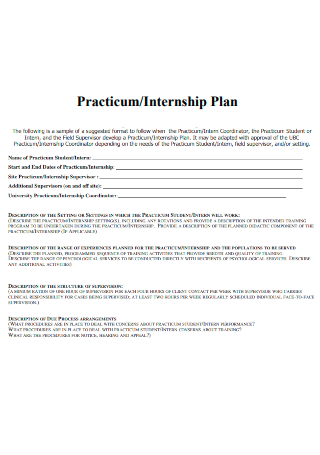
Practicum & Internship Plan
download now -
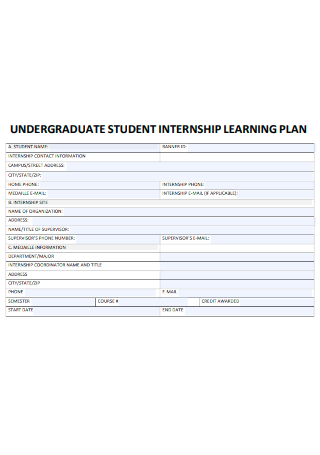
Undergraduate Student Internship Learning Plan
download now -
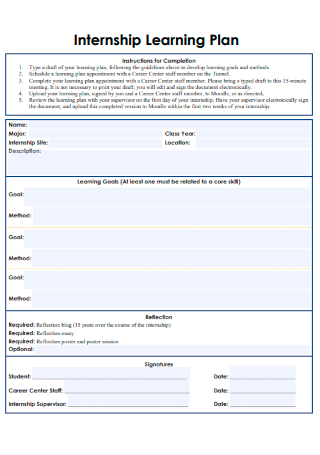
Printable Internship Learning Plan
download now
What Is an Internship?
An internship is a short period of employment experience offered by an organization. Previously reserved for medical graduates, internships are now used to prepare students for various positions in businesses, non-profit organizations, and government agencies. According to statistics, 70% of interns are offered a position at the company where they interned. 56% of these job openings are full-time, while 14% are part-time. 80% of interns take up these job offers.
Benefits of Internships
Consider how an internship can help you narrow your focus and prepare you for future jobs as you finish your college education and venture on your chosen career path. The following are some of the benefits of internships for students:
How To Develop an Internship Program
Internship programs can be advantageous to your company and the interns you hire. However, to provide your interns with the best learning experience possible, you’ll need an internship program template that gives a structure for their experience while also ensuring that they learn new skills, improve professionally, and obtain clarity about their professional prospects. You’ll be able to utilize your template for interns now and in the future once you’ve created it. Here’s how to create an internship program for your company.
1. Create a blueprint for a successful internship program
Before you become too concerned with immediately constructing the perfect internship program template, keep in mind that you can continually improve and modify your internship program structure. As you work with more interns, you’ll quickly learn what elements of your internship program template work effectively and what should be altered or eliminated. To get started, though, you need to establish a few essential components before hiring your first interns. According to a study of the best summer internships, interns preferred those that provided significant learning opportunities, so keep this in mind as you establish an internship program at your firm. While you may want interns to make copies and fetch coffee, they are unlikely to be positive and dynamic members of your team if that is all they do. For nearly a century, blueprints have been regularly utilized to reproduce specification drawings needed in building and industry. White lines on a blue background denoted the blueprint process, which was a negative of the original. The method was unable to reproduce color or grayscale shades. This procedure has been rendered obsolete.
2. Evaluate your resources
Before you can begin building an internship program and employing interns, you must first examine your organization’s resources. This should be done before each hiring cycle to ensure that you have the structure to support employing additional staff. Because, even though they are interns, they will require resources from your organization — both financial and otherwise. You should ensure that you have someone with the time and resources to oversee the interns and the funds to pay them. Before advertising the internship opportunity, you should determine how much you will pay them and whether you will grant course credit. You’ll want to appoint someone to assist with the internship program’s administration and devote time to onboarding and ongoing supervision of your interns. Additionally, this person should assist in screening interns and ensure that the role is appropriately portrayed in any job advertisements.
3. Consistently schedule check-ins
As someone with a hectic schedule, you understand how quickly time can pass you. It is critical that whoever manages your intern’s schedules time each week or every other week to check in with them and provide them with the attention and assistance they require. By incorporating these consistent check-ins into your internship program template, you can ensure that you and your interns have face time regularly. Indeed, this is not just for interns; it is a good practice for all managers with their direct reports, as it contributes to the development of favorable business culture. Weekly or bi-monthly check-ins should provide insight into how interns adjust to their new roles. It’s an excellent time to address any concerns, establish expectations, and evaluate their allocated tasks. By establishing this contact channel, you can expect interns to respect you as a supervisor and value your thoughts and time. If there are any issues, you want them to feel comfortable approaching you rather than continuing to dislike a section of their intern experience.
4. Establish reasonable, attainable goals
As with any aim, you want to ensure that the internship program template’s objectives are practical and attainable. Interns are typically only on-site for a brief amount of time. Due to the compressed timeline, you and your intern will want to ensure that their objectives and objectives are compatible and that they can be accomplished within their internship. Setting unreasonable goals for your interns can leave them feeling disappointed, overwhelmed, and unable to learn due to a lack of time. These one-on-one sessions described previously are an excellent opportunity to review and change these goals throughout your interns’ time with your firm. Because various interns work at varying speeds, it’s good to establish SMART goals in your internship program template. Those goals should be adaptable to each intern and how fast — or slowly — they adapt to your organization. As interns gain confidence in their role, they may feel prepared to take on additional responsibilities or acquire a new skill. One of the primary goals of interns is to learn and perform meaningful work. Setting attainable objectives is also productivity advice since when you believe you can accomplish something, you will be more motivated and anxious to complete it. According to research, goal setting can also offer you a set of criteria for determining whether or not your organization is succeeding. Having well-defined, measurable goals lets you take charge of your firm’s path and increases your chances of accomplishing your significant business objectives.
5. Give feedback
Additionally, you want to ensure that whoever manages your company’s interns provides regular and constructive feedback to them. This can be accomplished in those one-on-one encounters or on a more frequent or informal basis. When your organization develops an internship program, you should include criteria for when and how frequently your intern manager should provide input. Ascertain that your feedback is beneficial rather than detrimental. You can assist your interns by providing comments on their work or behavior — not on them as individuals — and by emphasizing some favorable characteristics while addressing areas for growth.
6. Include them in the team
Being new to a workplace where everyone is already seasoned and established in their roles can be frightening enough without figuring things out on your own. It would help if you treated your interns the same way you would any new employee. Consider your first job or internship – you’ll likely recall how nerve-wracking it was. These emotions are likely to be felt by your new interns as well. As a result, you should make them feel like they’re a part of the team to assist them to feel more welcome. Introducing them to other employees, engaging them in meetings, and even setting up team-building events at work can help them feel included. They should be included in your internship program plan, not to forget them.
7. Increase responsibility
If everything goes according to plan, you’ll notice your intern demonstrating their ability to handle their assigned work and, perhaps, the potential to take on more responsibilities. As indicated previously, interns usually work for your organization for a limited time, but you can expand their responsibilities or workload if they appear to be ready. Outlining the primary objectives of your internship program template and potential supplementary assignments can help guarantee that your interns are continually learning and do not become bored during their program.
FAQs
What is a work plan for an internship?
The work plan serves as the intern’s route map. It will convey their aims and how they intend to spend their time at your firm. While this may require some time upfront, it will pay off enormously throughout the internship.
How do interns obtain complimentary startups?
Your initial stop should be at local universities, colleges, graduate schools, or trade schools to recruit interns for your startup. Additionally, publicizing internship openings on your startup’s social media channels will assist you in gathering individuals to interview to select the best interns.
What are the expectations of an intern?
An internship is intended to be a form of exchange. The student agrees to perform work for the host organization in exchange for the opportunity to develop new skills, broaden their knowledge of a particular profession, and explore career choices.
Internships can demonstrate how a business develops leaders instead of simply learning about it in the abstract. You might watch folks who exhibit superior time management abilities and make a mental note of those you wish to emulate. You might discover helpful teamwork and cooperation abilities. If you view an internship as an extension of your education, you will likely acquire a slew of confidence-boosting skills that you can use in future jobs.
